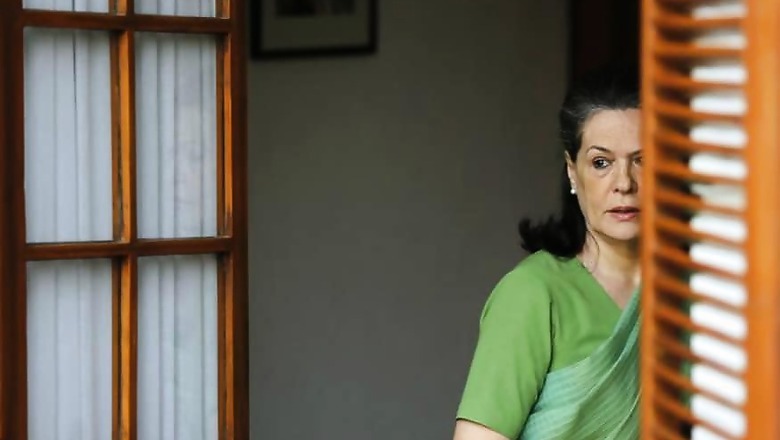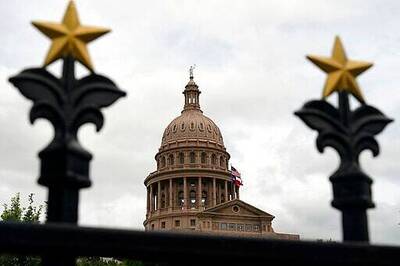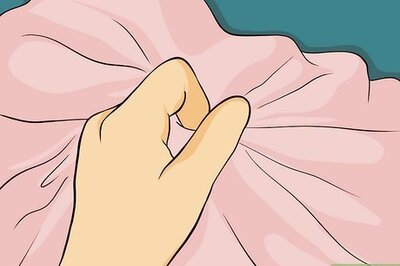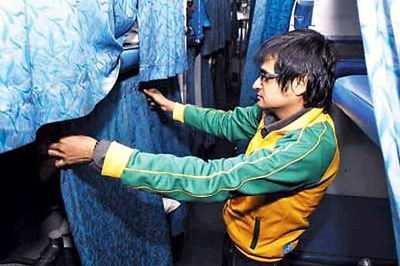
views
Sonia Gandhi’s political life has largely been shaped by circumstances than by her free will. This explains why she has been chosen to lead the party once again going against public opinion, her health, and her preference to lead a semi-retired life.
In 1980, Sonia was opposed to the idea of her husband Rajiv Gandhi joining politics after the death of Sanjay Gandhi and Rajiv taking over as prime minister after Indira Gandhi's assassination in 1984, but on both occasions, circumstances forced her to accept destiny.
After Rajiv's assassination, Sonia had shown a degree of firmness in saying no to politics when the entire Congress Working Committee (CWC), then led by Pranab Mukherjee, had pleaded with her to be Rajiv’s successor on May 22, 1991.
By 1997, many Congress leaders like Aslam Sher Khan, Mani Shankar Aiyar, PR Kumaramangalam, Suresh Kalmadi and Buta Singh had deserted the grand old party. In despair, a number of middle-rung leaders such as Digvijaya Singh, Ahmed Patel, Ashok Gehlot, Vayalar Ravi and Kamal Nath had approached the then “apolitical” Sonia with a question: “How can you allow the collapse of the Congress before your eyes?”
The tardy progress in the probe of Rajiv's assassination, declining the fortunes of the Congress, and attacks on the Nehru-Gandhi legacy had weighed heavily on Sonia’s decision to join active politics.
Sonia viewed the Congress as an extension of her love for Rajiv and the country she had chosen to live in. In an interview, she had told journalist Shekhar Gupta that she had a pang of guilt each time she passed by Rajiv’s portrait hung in the living room at 10, Janpath — that she was not doing enough to revive the Congress.
Few would be aware that until 2016, Sonia was determined to opt for voluntary retirement and set an example in public life. She should have known that saying no to politics has never been a reality for the Gandhis.
In 1950s, Indira Gandhi had reportedly wanted to leave Prime Minister Jawaharlal Nehru’s residence and settle abroad after husband Feroze Gandhi’s death. But domestic political compulsions brought her to active politics in 1959 (when she served as the Congress president) and post-Nehru's death, till her own death in October 1984.
Rajiv desisted from politics, yet brother Sanjay’s death in an air crash forced his hand. In 1984, Sonia reportedly fought like a tigress to oppose Rajiv's decision of becoming prime minister even as Indira's dead body, riddled with bullets, laid in state. Sonia had to give in to the demands of the Congress rank and file in December 1997 when the the party’s organisational and ideological frame was collapsing.
On August 10, 2019, 10 days before Rajiv would have turned 75, Sonia decided to take the reins of the party again when the grim situation of 1997 appears to be a pale shadow of the present day Congress. Sonia may not revive the Congress or bring back its ‘good old days’, but sources close to her say she wants to give it a try and not behave like an escapist.
The late Jaipal Reddy had once described her as “one of the finest graduates from the university of life”. There is some merit in it as Sonia is a quick and keen learner.
Delivering a lecture on "Living Politics: What India Has Taught Me" at the Nexus institute Tilburg, The Netherlands, in 2007, Sonia had observed, "Looking back, I can say that it was through the private world of family that the public world of politics came alive for me: living in intimate proximity with people for whom larger questions of ideology and belief as well as issues relating to politics and governance were vivid daily realities. I had to school myself not to react in the face of falsehood and slander. I had to learn to endure them as the rest of the family did."
In conclusion, Sonia had remarked, “Public life in India is characterised by vigorous debate and vehement contention. The cacophony of politics is the very music of our democracy.”
(Rasheed Kidwai is a visiting Fellow with the Observer Research Foundation. Views are personal)



















Comments
0 comment